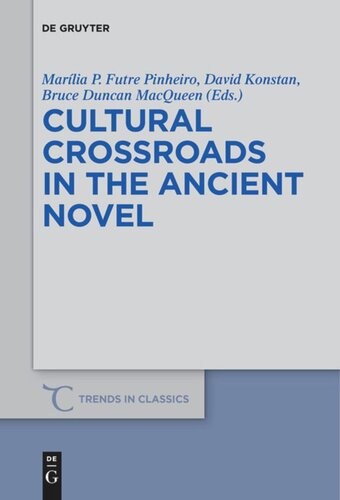

Most ebook files are in PDF format, so you can easily read them using various software such as Foxit Reader or directly on the Google Chrome browser.
Some ebook files are released by publishers in other formats such as .awz, .mobi, .epub, .fb2, etc. You may need to install specific software to read these formats on mobile/PC, such as Calibre.
Please read the tutorial at this link: https://ebookbell.com/faq
We offer FREE conversion to the popular formats you request; however, this may take some time. Therefore, right after payment, please email us, and we will try to provide the service as quickly as possible.
For some exceptional file formats or broken links (if any), please refrain from opening any disputes. Instead, email us first, and we will try to assist within a maximum of 6 hours.
EbookBell Team

4.0
76 reviewsThe protagonists of the ancient novels wandered or were carried off to distant lands, from Italy in the west to Persia in the east and Ethiopia in the south; the authors themselves came, or pretended to come, from remote places such as Aphrodisia and Phoenicia; and the novelistic form had antecedents in a host of classical genres. These intersections are explored in this volume. Papers in the first section discuss “mapping the world in the novels.” The second part looks at the dialogical imagination, and the conversation between fiction and history in the novels. Section 3 looks at the way ancient fiction has been transmitted and received. Space, as the locus of cultural interaction and exchange, is the topic of the fourth part. The fifth and final section is devoted to character and emotion, and how these are perceived or constructed in ancient fiction. Overall, a rich picture is offered of the many spatial and cultural dimensions in a variety of ancient fictional genres.